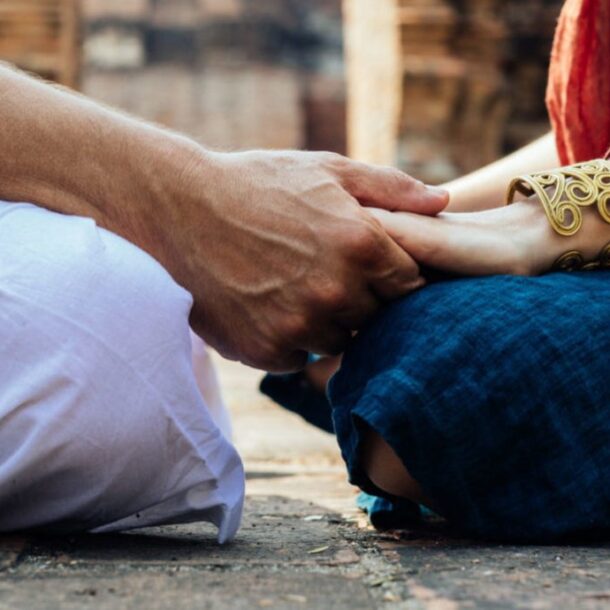
Use mindfulness techniques in everyday life so you can handle any situation—good or bad—with much less stress and more focus.
Between smartphones, social media, politics, and their associated stresses, modern life means that many of us are wandering around constantly distracted. It’s tempting to give into the distraction, allowing ourselves to focus our awareness on getting the perfect photo at a friend’s wedding or birthday party, or mindlessly scroll through our social media feeds when we aren’t sure what to do with ourselves. Joyous moments and downtime alike have become opportunities for distraction, and because we’re so preoccupied, we then give into the stress that comes along with constant stimuli. This can lead us to feel sad, anxious, angry, and more.
The solution? Being a mindful observer in distracting and stressful situations. I’m going to explain how, but first, a story.
In one of the epics, there’s a tale about a king. Even though he was a ruler, he was extremely enlightened and spiritual. One of his ministers asked him how he could be so enlightened and still do the everyday duties of ruling. He was able to multitask and strategize, look after law and order, keep track of the kingdom’s finances, and more. It’s not easy to be enlightened and do all of these things.
The king told his minister that he was able to do all of these tasks and remain enlightened because in any role he was playing, in any given moment, he was 100 percent in that role or duty. By being fully present, he was capable of separating himself from his identity as king, and looking at every situation as a third party. In other words, he was a conscious witness to this guy who happened to be a king. He was unattached to his identity as a ruler and as a person, and because of this, nothing could affect his inner peace or enlightenment.
Here’s another example: The lotus flower flourishes in dirty water and yet remains untouched. It’s not affected by what’s around it, and that’s why it’s so highly regarded as a flower of spiritual significance. It can be detached from its surroundings and still bloom to its fullest potential.
If you’re starting to sense a theme, it’s that taking a step back from what’s happening around you is the key to staying mindful, especially when it’s most challenging to do so. So in any stressful or distracting situation, mindfulness can help you become an observer and, thus, give you the ability to detach and remain unaffected by everything in your environment.
In happy situations, this means the ability to fully enjoy whatever is going on. In sad or stressful situations, it means learning to recognize emotions, become aware of them, and set them aside.
So how do you become this mindful person? Well, by practicing. And one of the best ways to practice is by using techniques learned from guided meditations. Those awareness skills can easily be translated into your everyday life.
In a meditation, you might use a breathing pattern to bring your awareness inward. When you’re feeling stressed or emotional, remember those breathing patterns that you’ve practiced and use them to tune into what’s going on inside. Observe your emotions and you’ll gain control over them.
When you’re distracted by the hubbub of an event or environment, use your ability to notice the details—how vibrant the colors are around you, the looks on others’ faces, the sounds in your environment—to become an observer for just a moment. By doing so, you’ll be able to stay fully present. The more you do this, the more aware you’ll become, and the easier it will be to feel “in the moment,” no matter the situation.
It starts with becoming conscious outwardly of what’s happening around you, and then slowly, you start to become conscious of what’s happening within your body and mind. Thoughts come, you recognize them, and you let them go. It gradually becomes a habit to see all thoughts and emotions as they’re happening, as someone who’s watching over them. As you do that, you’re able to notice more about a variety of situations that are normally difficult to be mindful in—weddings, parties, arguments, moments of stress.
In any sad situation or happy scenario, you’re playing your role, and yet you’re constantly watching as a third party. Nothing is really happening to you. Nothing can happen to you.
When you start to look at all the roles you play—whether that’s mother, father, son, daughter, CEO, assistant, friend, whatever—as an observer through mindfulness, you start to know who you really are as a person. Then, you can handle any situation with much less stress and distraction.

